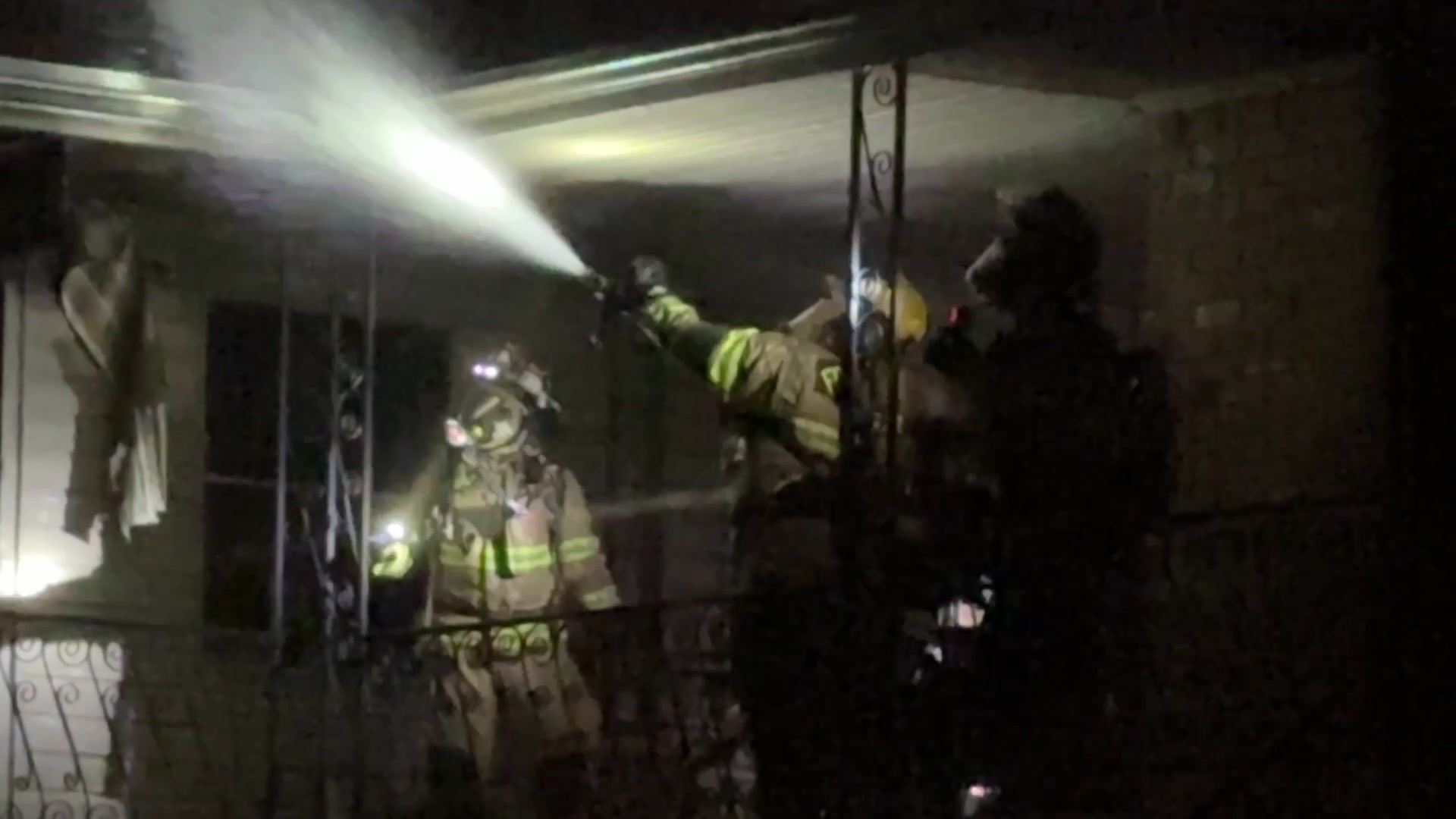Social media scammers overseas are targetting teens across the U.S. and right here in North Texas, threatening to expose embarrassing pictures if their demands aren’t met. NBC 5’s Maria Guerrero explains how the relatively new scheme works.
The FBI Dallas Office is issuing a warning for parents across North Texas.
Social media scammers overseas are targeting teens across the country and right here at home, threatening to expose intimate photographs if their demands aren’t met.
Watch NBC 5 free wherever you are
This particular scheme has surfaced in the past two to three years and has had tragic consequences, according to FBI Dallas.
“It’s happening here, it’s happening everywhere,” said Assistant Special Agent in Charge Jeremy Wright. “It doesn’t matter what neighborhood you live in, what school you go to.”
Get top local stories in DFW delivered to you every morning with NBC DFW's News Headlines newsletter.
Wright agreed to speak with NBC 5 about how unsuspecting teens are falling victim to a heartless online scam.
While any minor can become a target, Wright has noticed that “the vast majority of victims are going to be boys 14 to 17.”
WHAT IS 'SEXTORTION'?
Local
The latest news from around North Texas.
Here’s how it works: The victim will connect with someone on social media, especially through Instagram or Snapchat, who appears to be an attractive girl.
The 'girl’s' messages immediately become sexual in nature, which Wright says should be an immediate red flag.
“It’s going to be either a message or a photo, an inappropriate photo, and they’re going to say: Now, your turn,” said Wright.
When the victim sends nude or sexually explicit photographs or videos of themselves, they immediately become a victim of ‘sextortion.’
It’s unclear why boys appear to be targeted more than girls, Wright can only speculate.
“Maybe boys are maybe more susceptible to make that snap decision [to send the photograph] but also boys might also feel more embarrassed by the photos they send,” he said.
The 'girl' is in actuality an organized criminal network operating in countries like Nigeria, the Ivory Coast or the Philippines, who often stockpile photographs of real people or use artificial intelligence for the ruse.
As soon as the crook receives the nude photos or videos, they’ll immediately threaten the victim with releasing the images to their friends or family if the victim does not send them money or gift cards.
The extorted amount varies but can be anywhere between $50 to a few thousand dollars, according to the FBI.
“They’ll even send a screenshot of your friends on whatever social media platform you’re on, they’ll even send a screenshot: 'Hey, I know where you go to school,'” said Wright.
Incredibly, there are cases where the threats have been carried out when money wasn’t paid and others where the victim is extorted out of money more than once.
WHY TEEN 'SEXTORTION' IS A SERIOUS CONCERN
Nationally, 18,000 reports of teen sextortion were made in 2021 but the number of victims is believed to be even higher.
Most complaints filed with FBI Dallas in the last fiscal year were for crimes against children, according to Wright, with about 40% related to extortion.
He estimates about half of that amount is directly correlated to this particular scheme.
While no suicides have been linked to teen sextortion in the Dallas region, there have been a number of cases reported across the country.
“This has definitely elevated on our priorities because of the propensity for kids to commit suicide because they feel like it’s hopeless,” said Wright. “You feel helpless. You feel like there’s no hope for you, which we know as a parent and an adult that is not the case, but at the time nothing else matters.”
PARENTS NEED TO TALK TO TEENS BEFORE IT HAPPENS
That is why, he says, parents need to talk to their teens before it happens.
“We need them to know it’s OK to tell us if it happens,” said Wright. “It’s not hopeless. Everything will be fine and we’re here to help you.”
As a parent to three boys, Wright cannot comprehend how heartless the scheme is, even recalling one criminal saying ‘I don’t care’ when learning of a teen’s suicide.
“I think the hurt and the anger I feel for parents, being a father myself, for your child to be in that situation. You can’t describe it,” he said.
He urges parents to show restraint when learning their child has sent explicit photographs and is being extorted to avoid victim blame or dissuade their teen from confiding in you again.
Teens need to be vigilant of who they allow to receive messages from, he said, especially when so many want to accumulate as many ‘followers’ as possible.
Wright worked for the FBI in Kentucky and spoke openly with high school students about the dangers they could encounter online, including sextortion.
WHAT TO DO IF YOU ARE A VICTIM OF 'SEXTORTION'
Remember, if it sounds too good to be true, it probably is.
Rarely will a real girl immediately become aggressive or sexually explicit in her requests, Wright warns.
“It’s rarely a girl,” he said. “It’s a grown man in another country usually.”
The FBI Dallas Office is making plans to create more awareness about ‘teen sextortion’ with public service announcements and perhaps visits to area high schools to speak with students.
If you or your child has fallen victim to ‘sextortion,’ you are encouraged to reach out to the FBI by calling 1-800-CALL-FBI or visit the FBI's Internet Crime Complaint Center.



